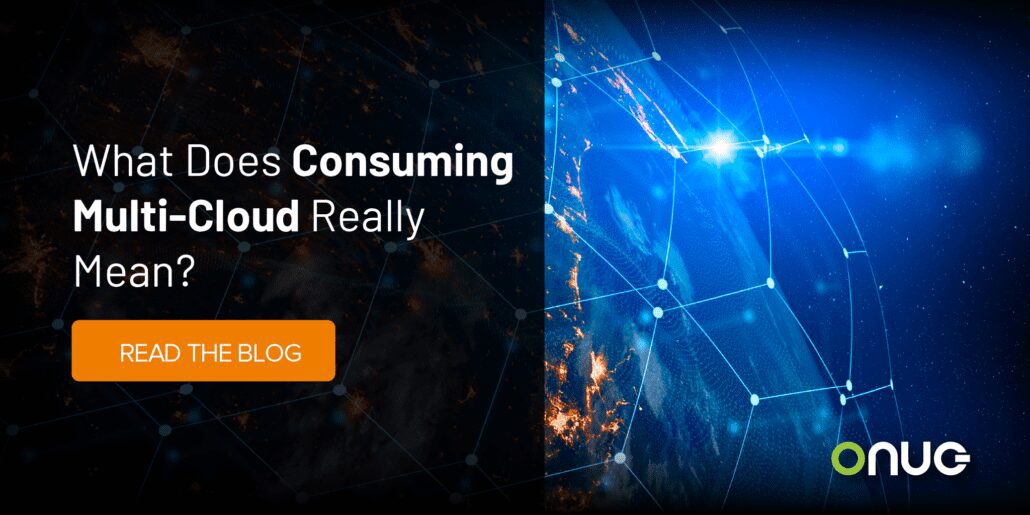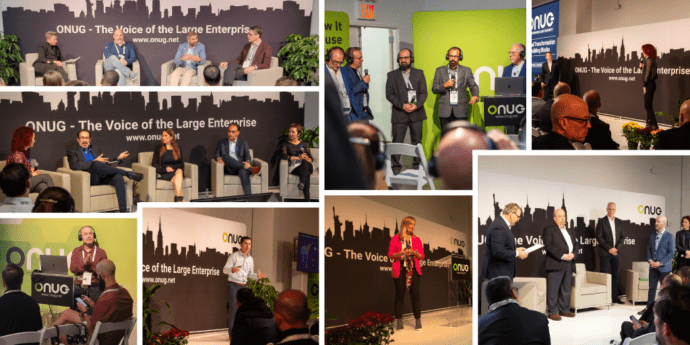
What Does Consuming Multi-Cloud Really Mean?
Much of the work we do at ONUG has a bias toward enabling the enterprise to consume cloud services from multiple providers. Clearly, the obstacle that makes this so challenging is the absence of standards for cloud consumers. ONUG’s Automated Cloud Governance Working Group is fully committed to tackling these problems and, fortunately, we’ve got the ear of most of the CSPs. Working side by side with Google, Microsoft, Oracle, and IBM every week on the Cloud Security Notification Framework (CSNF) is very gratifying for myself, as well as for ONUG’s Enterprise consuming members.
But what does it truly mean to be multi-cloud? Does it have to mean that your organization is actively and, necessarily, simultaneously deploying workloads to multiple clouds? I’ve given this a lot of thought recently as ONUG prepares for the Fall 2022 conference. At ONUG Fall, the community will be holding the mirror up and asking the tough questions about value versus toil in the multi-cloud arena. There will be great sessions that include large enterprise consumers dealing with this very tough issue, like Intuit executives discussing “Can you really do multi-cloud at scale?” on day one of the conference. What I absolutely feel confident about is this: If your organization is not in a position to either consume multi-cloud services simultaneously OR rapidly adjust your workloads to an alternate provider then you’re trapped. You are experiencing vendor lock-in. Why? Because the industry has not provided ubiquity in the Cloud. The effort to consume the next provider is a step function, not incremental.
So it’s not nearly as important to be consuming multiple Cloud Services simultaneously as it is to be able to make a change quickly, with little toil, and without disruption to your business. That cannot happen without better cloud standards. If your Enterprise is feeling this pain, you should consider joining me in the ONUG Collaborative and see what we can accomplish together! Check it out at ONUG.net.


